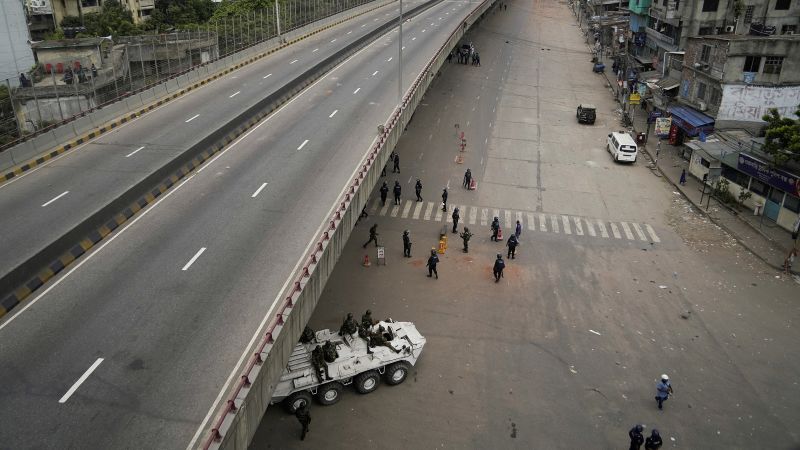CNN
—
Bangladesh’s Supreme Court on Sunday rolled back most of the controversial quotas on government jobs which sparked violent protests.
Under the quota system, some 30% of sought-after civil service jobs are reserved for relatives of veterans who fought in Bangladesh’s war of independence from Pakistan in 1971 – with many of the country’s contemporary political elite related to that generation.
Since the roles are linked to job security and higher pay, the quota system has angered many in the country, particularly students and young people, as Bangladesh faces high unemployment levels.
Dozens of people have reportedly been killed and hundreds injured in the violence, which saw demonstrators gather on streets and university campuses in the capital Dhaka and other cities.
In 2018, the civil service quota system was scrapped following similar protests but in June the High Court reinstated it, ruling its removal unconstitutional. On July 10, the Supreme Court suspended the quotas for one month while it took up the case.
On Sunday, the country’s top court dismissed the earlier ruling that brought back the quotas, directing that 93% of government jobs will be open to candidates on merit, without quotas.
Speaking to local media in Dhaka following the announcement, Shah Monjurul Hoque, a lawyer representing students said that the Supreme Court “gave a final solution to this quota system.”
“That is 93% quota for general people, 5% quota for freedom fighters and their kin, 1% for ethnic minority community, and 1% for third gender and physically disabled,” he said.
Bangladesh Attorney General A.M. Amin Uddin told Reuters, “I am hoping normalcy will return after today’s ruling and people with ulterior motives will stop instigating people,” noting that students “have clearly said they are in no way part of the violence and arson that have taken place in Bangladesh since Monday.”
“I will ask the government to find out the culprits behind the violence and take strict action against them,” he added.

Ahead of the ruling, Bangladesh on Sunday extended a curfew imposed on Friday to try to quell the violence and deployed soldiers to patrol the streets of the capital Dhaka, according to Reuters.
According to local media, the curfew was extended until after the Supreme Court hearing and will continue for an “uncertain time” following a two-hour break for people to gather supplies, Reuters reported.
CNN has tried to reach the prime minister’s office, home affairs ministry, and police, but mobile and internet services appear to remain mostly down across the country after a government-imposed blackout.
As of Saturday, internet monitoring site NetBlocks said activity had remained at around 10% for more than 48 hours since services were cut Thursday.
The US state department raised the travel advisory level for Bangladesh on Saturday, urging people to “not travel” due to “civil unrest, crime and terrorism.”
#Bangladeshs #top #court #rolls #job #quotas #deadly #protests,
#Bangladeshs #top #court #rolls #job #quotas #deadly #protests
